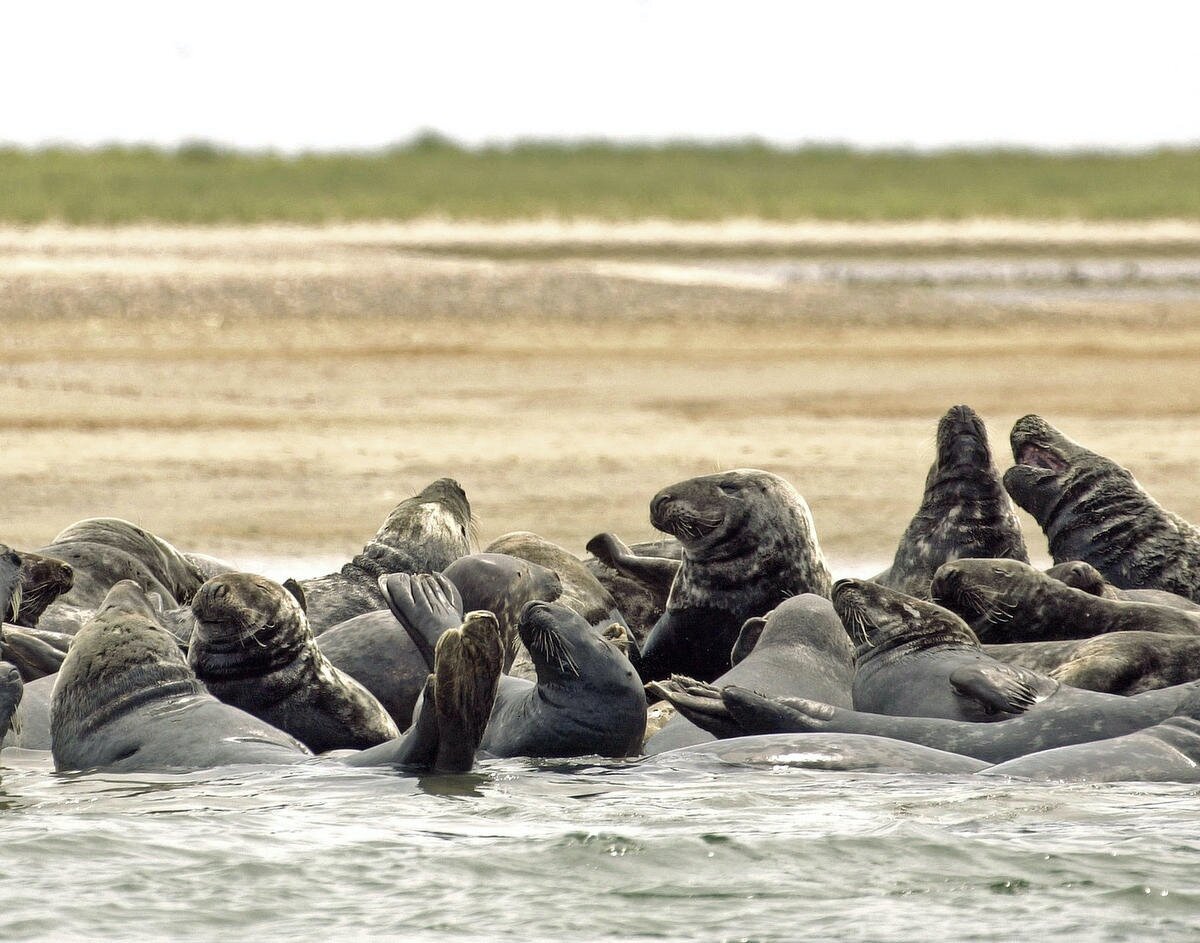The Rebound of the Seal Population
Mindy Todd. Cape. Aug 25, 2020
The seal population in the Northwest Atlantic has rebounded thanks to the passage of the Marine Mammal Protection Act in the 1970’s. Some are concerned about the impact of seals on fisheries and water quality, and believe seals are responsible for sharks in the waters off the Cape. To learn about the grey seal population and it's role in the ecosystem, we talk with Stephanie Wood, Research Professor of Seal Biology at UMASS Boston’s School for the Environment. Here's a link to The Northwest Atlantic Seal Research Consortium (NASRC) studying how healthy populations of all marine resources including fishes, seals, whales, and other species are important components of healthy marine ecosystem.
Facts, but no easy answers, around shark bites in New England
Nick Whitney and Greg Skomal. Boston Globe. July 31, 2020.
So what can we do –especially as people flock to the beach to cool off?
A terrible tragedy took place in the waters off Maine this past Monday when a woman was fatally injured by a bite from a white shark. As shark scientists, we follow these incidents closely and try to learn whatever we can, but we fully realize that data and analyses are of little comfort to all those affected. We also know that part of our job as scientists is to communicate the facts to the public as clearly as possible: This was the first-ever shark-related fatality in Maine’s history. There were only two fatalities from sharks in the world in 2019.
Rare shark attack in Maine may be linked to marine protection efforts
Valerie Yurk. The Guardian. July 30, 2020.
Shark and prey populations such as seals are increasing in New England waters, and sharks follow their food, experts say.
A fatal shark attack in Maine may be linked to rebounding shark populations after they faced near decimation 40 years ago along the New England coast, according to experts…..
Seals On Cape Cod Are More Than Just Shark Bait
Miriam Wasser. NPR. WBUR. August 2, 2019.
There are tens of thousands of seals on Cape Cod and the Islands, and everyone seems to have an opinion about them. Some see them as an adorable tourist attraction that helps the ecosystem. But to others, they’re Public Enemy No. 1 — a messy, fish-eating shark magnet that needs to be culled……
Going Full Ninja on Smelly Seals with Andrea Bogomolni
Boston 10 NBC. October 8, 2019.
Seals play a major role in a shark’s diet and the culture around these predators in Cape Cod. Researcher Andrea Bogomolni is studying seals to learn more about how they fit into our ecosystem. Learn more about what her research is finding and why we should all agree that ticks are worse than sharks.
Does Cape Cod Have A Gray Seal Problem? We Dig Into The Science
Zoē Mitchell and Tiziana Dearing. WBUR Boston. Aug 20, 2019
Guest Andrea Bogomolni, chair of the Northwest Atlantic Seal Research Consortium.
The gray seals have been blamed for eating up the fish, polluting the water, and attracting more sharks to the Cape. So, what's been the actual impact and does something need to be done about the seals? We dig into the science….
After a Shark Attack, Addressing Cape Cod’s Seal Population
Sarah Mizes-Tan. NPR. Oct 2, 2018
In the wake of the Cape’s first shark fatality, there have been increasing concerns about the seal population and its impact on tourism and the economy of fisheries, which leaves many people wondering: does Cape Cod have a seal problem?
Seals on Monomoy Island
CREDIT MASSACHUSETTS OFFICE OF TRAVEL & TOURISM / SUESS
Scientists Address Myths, Misinformation About Seals
Tim Wood. Cape Cod Chronicle. Oct 31, 2018
CHATHAM – With the board of selectmen slated to discuss the impact of seals – and sharks – on the town's beaches, fishing industry and economy next Tuesday, scientists say the issues are being clouded by misinformation and speculation about both species.



